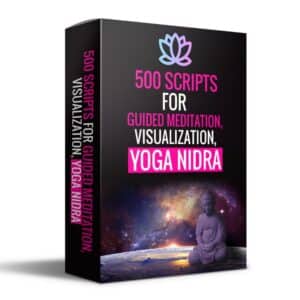Introduction to Mindful Drinking
Mindful drinking is about consuming beverages, particularly alcohol, with full awareness of the reasons for drinking, the effects on your body and mind, and the experience of drinking itself. This practice helps you enjoy your drink more fully, understand your relationship with alcohol, and make conscious choices about consumption.
Benefits of Mindful Drinking
- Enhanced Enjoyment: By focusing on the experience, you savor the drink more, which can lead to greater satisfaction from less consumption.
- Better Understanding of Motives: Mindfulness helps you recognize why you’re reaching for a drink, which can inform healthier choices.
- Increased Control: Being mindful can help you avoid excessive drinking and its negative consequences.
- Improved Physical Health: Mindful drinking can contribute to better overall health by reducing the risks associated with excessive alcohol consumption.
Mindfulness Exercises for Drinking
1. Mindful Sipping
How to Do It:
- Before taking a sip, pause to look at your drink, observing its color, consistency, and any bubbles or steam.
- Smell the beverage, noting any aromas or scents that stand out.
- Take a small sip, letting the liquid sit in your mouth for a moment to fully taste it before swallowing.
- Reflect on the flavors, the temperature, and the sensations in your mouth and throat.
Why It Helps:
This practice helps you appreciate the complexity of your beverage, slowing down consumption and enhancing the experience.
2. Checking In Before Drinking
How to Do It:
- Before you start drinking, take a moment to check in with yourself. Assess your emotional state, your physical feelings, and your reasons for drinking.
- Decide how much you plan to drink and set an intention to stay mindful of your consumption throughout the experience.
Why It Helps:
This exercise helps you make conscious choices about drinking, ensuring that you’re drinking for enjoyment rather than as a response to stress or social pressure.
3. Pausing Between Drinks
How to Do It:
- After finishing a drink, wait for a few minutes before deciding whether to have another.
- During this pause, check in with your body and mind. Notice any effects the alcohol has had and whether you truly want or need another drink.
Why It Helps:
This pause can reduce the likelihood of automatic or mindless drinking, helping you stay in control and aligned with your intentions.
Incorporating Mindful Drinking into Daily Life
- Start with Water: Before drinking alcohol, have a glass of water. This not only keeps you hydrated but also helps you slow down and be more deliberate about your drinking.
- Journal Your Experiences: Keep a drinking diary to note your observations and feelings about your drinking sessions, which can provide insights over time.
- Educate Yourself: Learn about the effects of alcohol on the body and mind, which can motivate more mindful consumption.
- Practice Mindfulness Regularly: Engaging in regular mindfulness practices, even unrelated to drinking, can enhance your overall mindfulness skills.
Conclusion
Mindful drinking allows you to enjoy your beverages more fully, understand your motivations, and make healthier choices about alcohol consumption. By practicing the exercises outlined in this worksheet, you can cultivate a more mindful approach to drinking, benefiting your physical and mental well-being.
Discover the transformative power of mindfulness with our carefully curated collection of printable mindfulness worksheets and exercises. Each worksheet is designed to guide you through exercises that cultivate awareness, reduce stress, and promote emotional well-being. From grounding techniques to breathing exercises, these tools are your allies in navigating the complexities of daily life with a sense of calm and presence. Whether you’re a beginner or looking to deepen your practice, these printable resources are tailored to meet your needs.
Save up to 88% with our Bundles
Instant Download
- Digital Download
- Digital file type(s): 1x PDF
- Your files will be available to download once payment is confirmed

![Printable Drinking Mindfulness Worksheet & Exercises [PDF]](https://guidedmeditationscript.com/wp-content/uploads/2024/03/Printable-Drinking-Mindfulness-Worksheet-Exercises-PDF.jpg)
![Printable Doodling Mindfulness Worksheet & Exercises [PDF]](https://guidedmeditationscript.com/wp-content/uploads/2024/03/Printable-Doodling-Mindfulness-Worksheet-Exercises-PDF-main-300x150.jpg)
![Printable Eating Mindfulness Worksheet & Exercises [PDF]](https://guidedmeditationscript.com/wp-content/uploads/2024/03/Printable-Eating-Mindfulness-Worksheet-Exercises-PDF-300x150.jpg)
![15,000 Positive Affirmations Bundle [PDF]](https://guidedmeditationscript.com/wp-content/uploads/2024/01/15000-Positive-Affirmations-Bundle-PDF-1-300x300.webp)

![150 Best Hypnosis Scripts [PDF] Bundle](https://guidedmeditationscript.com/wp-content/uploads/2023/11/150-Best-Hypnosis-Scripts-PDF-Bundle-300x300.jpg)

![200 Printable Mindfulness Exercises Worksheets Bundle [PDF]](https://guidedmeditationscript.com/wp-content/uploads/2024/02/200-Printable-Mindfulness-Exercises-Worksheets-Bundle-PDF-300x300.jpg)


![Printable Mindfulness Exercises & Worksheet for Emotion Regulation [PDF]](https://guidedmeditationscript.com/wp-content/uploads/2024/02/Printable-Mindfulness-Exercises-Worksheet-for-Emotion-Regulation-PDF-300x150.jpg)
![Printable Mindfulness Exercises & Worksheet for Elementary Students [PDF]](https://guidedmeditationscript.com/wp-content/uploads/2024/02/Printable-Mindfulness-Exercises-Worksheet-for-Elementary-Students-PDF-300x150.jpg)
![Printable Mindfulness Exercises & Worksheet for Managing Depression [PDF]](https://guidedmeditationscript.com/wp-content/uploads/2024/02/Printable-Mindfulness-Exercises-Worksheet-for-Managing-Depression-PDF-300x150.jpg)